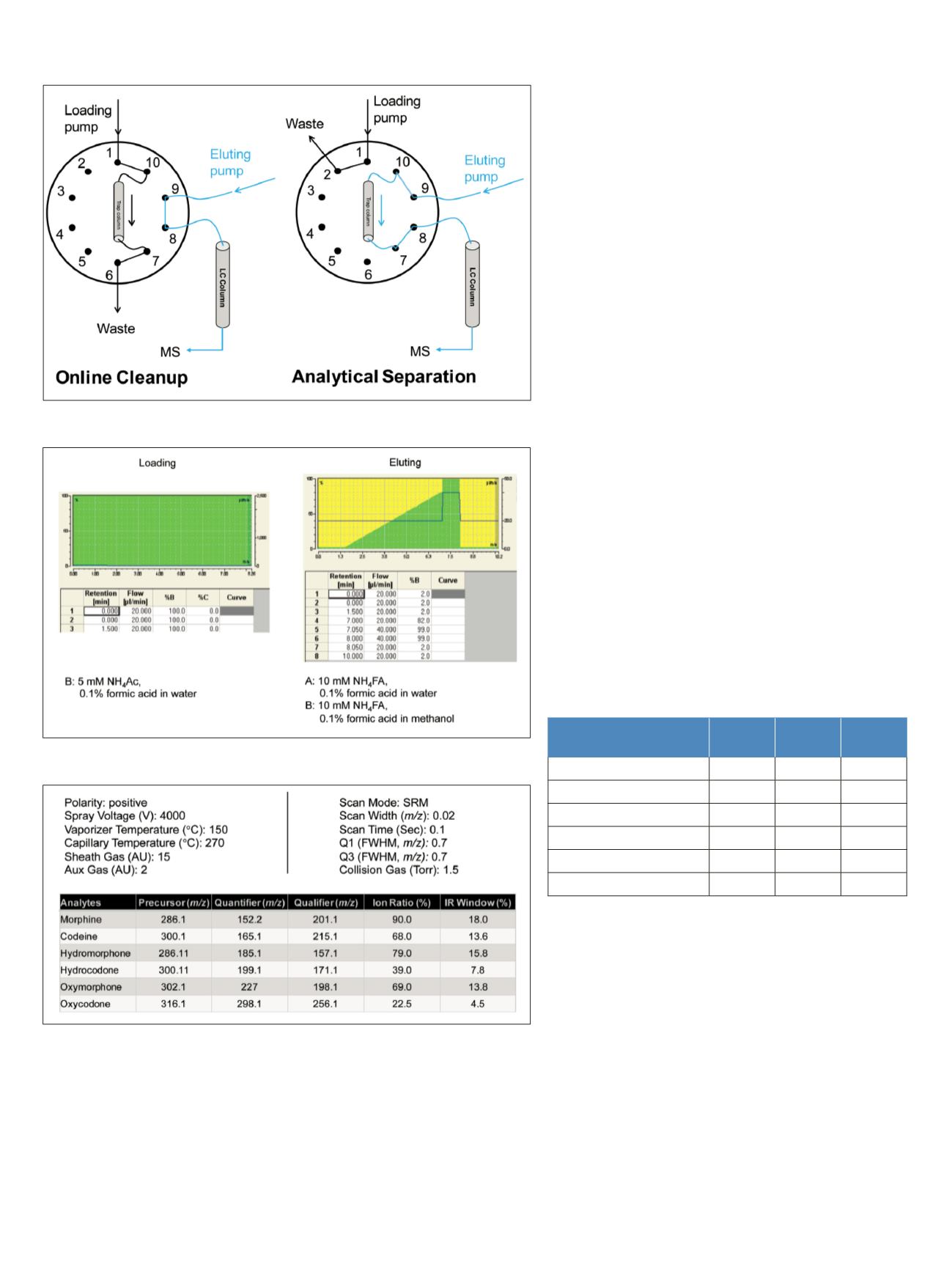

2
Figure 1. Microflow LC setup with pre-concentration trapping column
Figure 2. LC gradients of microflow LC with online clean-up
Figure 3. MS source parameters and SRM transitions
Results and Discussion
Validation
The validation procedure includes tests for 1) recovery;
2) lower limit of quantitation (LLOQ), dynamic range,
accuracy; 3) precision; and 4) carryover.
Recovery
First, we determined the optimal dilution factor for urine
sample preparation. Twelve lots of blank human urine
samples, six lots of donor urine samples, and two water
samples were spiked with the IS, hydrolyzed, and diluted
100-, 250- and 500-fold with water. The SRM signals of
the internal standards from the urine samples and the
water samples were compared for absolute recovery.
Table 1 shows the average recoveries (n=18) for the six
opioids using different dilution factors. Clearly, the 500-fold
dilution led to the highest recoveries for all six opioids.
We used the 500-fold dilution to determine the recoveries
for unlabeled opioids spiked into 12 lots of blank urine
samples. Two concentrations of opioids at 100 and
500 ng/mL were tested. The absolute recovery was
determined by comparing the signals of unlabeled opioids
in urine and water samples. The relative recovery was
determined by comparing the analyte/IS ratio in urine and
water samples. The recovery results are summarized in
Table 2. There was minimum ion suppression for
morphine, codeine, hydromorphone and hydrocodone.
Although there was moderate ion suppression for
oxymorphone and oxycodone even after 500-fold
dilution, the relative recoveries against their IS were
nearly 100% in both concentration levels after
compensation from the IS.
Table 1. Dilution factor test results
Recovery
(%, n=18)
500x
250x
100x
Morphine-d3
101.2
86.6
85.4
Codeine-d3
99.5
88.0
79.7
Hydromorphone-d6
85.9
73.1
63.7
Hydrocodone-d3
78.0
68.2
67.2
Oxymorphone-d3
59.9
45.1
43.2
Oxycodone-d3
68.2
52.3
42.3



















